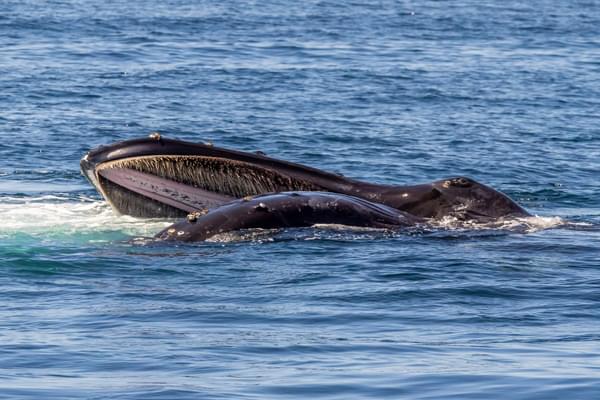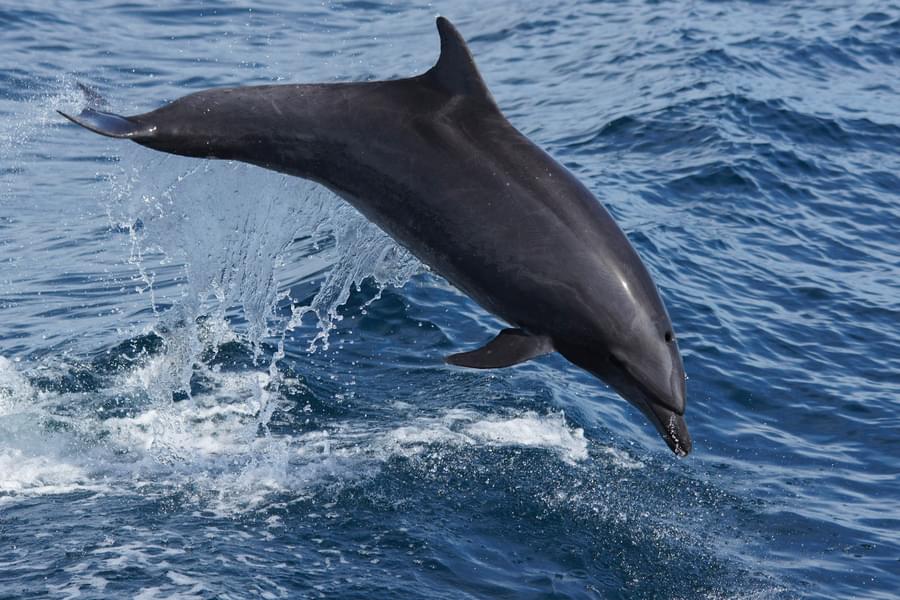Alarming new research from Oceana UK has shown that destructive trawling operations spent 33,000 hours in UK Marine Protected Areas (MPAs), causing habitat destruction, impacting protected species and releasing carbon back into the atmosphere in 2023 alone.
The MPAs identified by Oceana UK as being most affected by bottom trawling operations are the Western Channel Marine Conservation Zone off the Lizard Peninsula, and also the South West Deeps (East) which is 150 miles off Lands End - This is an MPA ORCA has studied closely and is a known hotspot for many different species of whales and dolphins.
The bottom trawling system is one of the most destructive methods to catch fish - trawlers drag heavy, weighted nets across the sea floor so that anything and everything that happens to be in their path gets swept up in the net too. For this reason bottom trawling has a large bycatch impact, with multiple non-target species being fished in the process.
In addition to turtles, juvenile fish and invertebrates being hoovered up in trawling nets, deep sea corals, sponges and anemones are also at risk. Where trawling occurs over submarine rock outcrops, lines and nets can get snagged and lost, and these live on as ghost gear.
Even the US Government’s own Geological Survey (USGS) experts argue that it “..destroys the natural seafloor habitat by essentially rototilling the seabed.” (More on the https://www.usgs.gov/programs/cmhrp/news/what-drag-global-impact-bottom-trawling#:~:text=Trawling%20destroys%20the%20natural%20seafloor,root%20systems%20or%20animal%20burrows.)
Back in January, it was announced by the UK Government that new measures would be introduced to protect 13 MPAs from what it described as “damaging bottom trawling.”
This came off the back of a 2023 consultation by its Marine Management Organisation, which concluded that bottom-towed fishing gear were causing damage to important pink sea fans, fragile sponges and anemones, particularly in rock and reef habitat. But bottom trawling’s devastating effects are not exclusive to rock and reef habitat. Following a ground-breaking legal challenge by Oceana UK in 2021, the UK Government began a programme of introducing bylaws to prevent bottom trawling in MPAs. Key areas such as Dogger Bank are already protected, and The Guardian reports that the government is set to begin a consultation on measures to protect the majority of England’s offshore MPAs this spring.
A Defra spokesperson went so far as to say that it was focused on stopping damaging fishing activity in all English MPAs.“We aim to have all necessary bylaws in place by the end of 2024, with further restrictions coming into force in 13 areas just this week.”
We welcome this commitment, though government consultations, assessment of consultations and production of bylaws are rarely a speedy process. And in the meantime, trawlers clock up more hours causing more damage. We’ll be looking to ensure this consultation begins as soon as possible, and may need to ask for your help in ensuring pressure is kept up to make it happen.

ORCA's work to protect whales and dolphins has never been more important and to help safeguard these amazing animals for the future we need your help. Please support our work by donating at www.orca.org.uk/donate to help us create oceans alive with whales and dolphins

